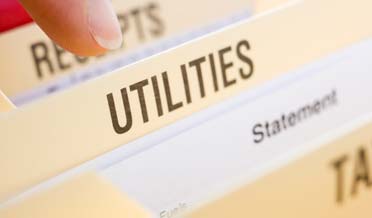4 AC Energy Savings Tips for Summer
Summer AC Energy Savings Tips
In the Brazos Valley, the summers are sunny, hot, and humid. And we love it! But since summers are hot and humid we also enjoy coming in out of the heat to refreshing air conditioning and an ice-cold glass of sweet tea. The cooling season is an excellent time for homeowners to tweak a few things and save money on their energy bill. Here are some quick AC Energy Saving tips:
- Make sure your AC works efficiently by keeping it clean and well maintained.
- Do not underestimate the value of changing your air filter often—at least every three months and more if needed. The dust you collect in the air filter will not collect on electrical components, clog your ductwork or create dust bunnies under the bed.
- Make sure vents and registers are not covered by furniture to ensure adequate airflow. Not only will this create hot spots, but will also make the air conditioner work harder.
- Check the outdoor compressor unit. You don’t need to know how it works, but it helps if you understand that its primary function is to cool the refrigerant. The enemy of your AC system is anything that interferes with cooling those gases, such as grass, leaves, or debris. Make sure nothing is collecting inside the unit to interfere with the fan or inside the unit to restrict airflow. Clean the dirt that builds up between the fins occasionally with a garden hose, but never with a power washer, since it might damage the fins.
- Schedule an AC maintenance visit with your HVAC professional. A technician will complete an inspection of the components that work together to cool your home, clean condenser coils, and check refrigerant levels. This visit often catches small problems before they become large problems.
- Control your AC strategically with an upgraded thermostat. If you have an analog thermostat (a dial instead of an electronic screen), installing a programmable or smart thermostat is a good move toward efficiency and comfort. Both will let you schedule your AC use for cost savings and comfort. How does it work?
- Set it and forget it. Determine the comfort level preferred by your family and set the temperature during normal waking hours. Avoid changing the temperature during the day.
- Determine a warmer, comfortable sleeping temperature and set the thermostat for your family’s sleep cycle. You will experience measurable and significant savings by decreasing demand over an 8-hour period.
- If your home is vacant during work hours, reduce energy use in the same manner.
- Before everyone wakes up in the morning, schedule a 30-minute cooling period. Do the same at the end of the workday.
- Install and use ceiling fans to maximize comfort. Moving air feels cooler; that is the basis for the winter wind chill factor. Moving air allows you to raise the AC by 4o before you feel the difference if you so desired. Change the direction of your ceiling fans by season; counterclockwise for the AC and clockwise for heating.
- The ideal humidity in a home is between 30 and 50%. Higher humidity has adverse effects, including stimulating mold and mildew growth, making surfaces sticky and a stale odor or stuffy feel to the air. If the AC functions fine but the humidity level in your home seems high, the HVAC system might need some assistance from a portable dehumidifier.
Comfort will drive efficiency. Efficiency will drive cost. These tips will help you make your family more comfortable without increasing energy use.
Want more info on how you can reduce your utility bills with AC Energy Savings Tips?
For more information about R.M. Mullinix and how to reduce your energy utility bills with AC energy savings, schedule an appointment, or visit our HVAC maintenance information page.

